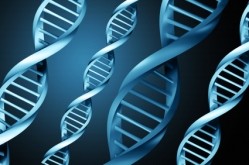‘Special’ coffee may protect against DNA damage: Study

Body weight and body fat were reduced by an average of 0.63 and 0.69 kg after four weeks of ingestion of a coffee specially roasted and blended to be rich in both green and roast bean compounds, report German researchers in Molecular Nutrition & Food Research.
In addition, the coffee was also associated with a 40 percent reduction in markers of DNA damage in 33 healthy volunteers, compared to non-consumption of the beverage.
“Our results allow [us] to conclude that daily consumption of 3–4 cups of brew from a special Arabica coffee exerts health beneficial effects, as evidenced by reduced oxidative damage, body fat mass and energy/nutrient uptake,” wrote the researchers, led by Professor Gerhard Eisenbrand from the University of Kaiserslautern.
The study was conducted in collaboration with researchers at the Technical University of Munich and German coffee company Tchibo GmbH. The study was funded by the German Federal Ministry of Education and Research.
Coffee and its extracts
The beverage, and its constituent ingredients, has come under increasing study with research linking it to reduced risk of diabetes, and improved liver health.
Coffee, one of the world's largest traded commodities produced in more than 60 countries and generating more than $70bn in retail sales a year, continues to spawn research and interest.
Indeed, a recent report by Mario Ferruzzi from Purdue University in Physiology & Behavior (doi: 10.1016/j.physbeh.2010.01.035) stated that coffee is one of the richest sources of polyphenols in the Western diet, with one cup of the stuff providing 350 milligrams of phenolics. Of these, the most abundant compounds coffee are chlorogenic acids, making up to 12 per cent of the green coffee bean. The most abundant of these compounds is caffeic acid.
The new study looked at a ‘special’ coffee blend containing roast coffee products and green coffee bean compounds. According to data in the research paper, the coffee was rich in chlorogenic acids and N-methylpyridinium (NMP), a compound formed during roasting.
Study details
Prof Eisenbrand and his co-workers recruited 33 healthy volunteers aged between 20 and 44 and a BMI ranging from 19 to 32 kg/m2. The 12 week study consisted of three phases: The first four weeks were a wash-out period, and this was followed by four weeks of coffee consumption, and a final four weeks of wash out.
At the end of the study, the researchers reported markers of DNA damage – measured using the widely accepted comet assay – showed a reduction of about 40 percent following the coffee consumption of the study, compared with the first wash-out phase. At the end of the second wash-out phase, the markers had begun to increase again, said the researchers.
Body fat and body weight were also significantly reduced following the four weeks of coffee consumption, said the German researchers, with the weight loss “significant and more distinct” in lean people (BMI less than 25 kg/m2), compared with overweight participants.
Mechanism
“The concomitant reduction of energy and nutrient intake observed in the coffee intervention phase suggests a potential influence of coffee constituents, particularly of [caffeoyl quinic acids (CQAs)], on the regulation of hunger and satiety,” wrote the researchers.
“Other potential mechanisms, such as modulation of glucose absorption and carbohydrate metabolism and/or caffeine-mediated induction of thermogenesis may also have contributed,” they concluded.
Source: Molecular Nutrition & Food Research
Published online ahead of print, Early View Article, doi: 10.1002/mnfr.201100093
“Antioxidant-rich coffee reduces DNA damage, elevates glutathione status and contributes to weight control: Results from an intervention study”
Authors: T. Bakuradze, N. Boehm, C. Janzowski, R. Lang, et al.








